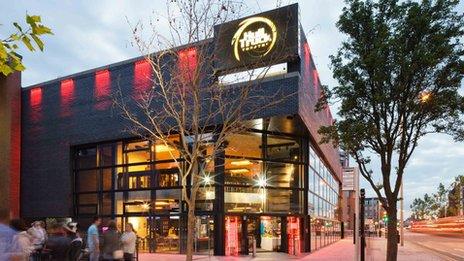City of optimism: Hull relishes Siemens investment boost
- Published
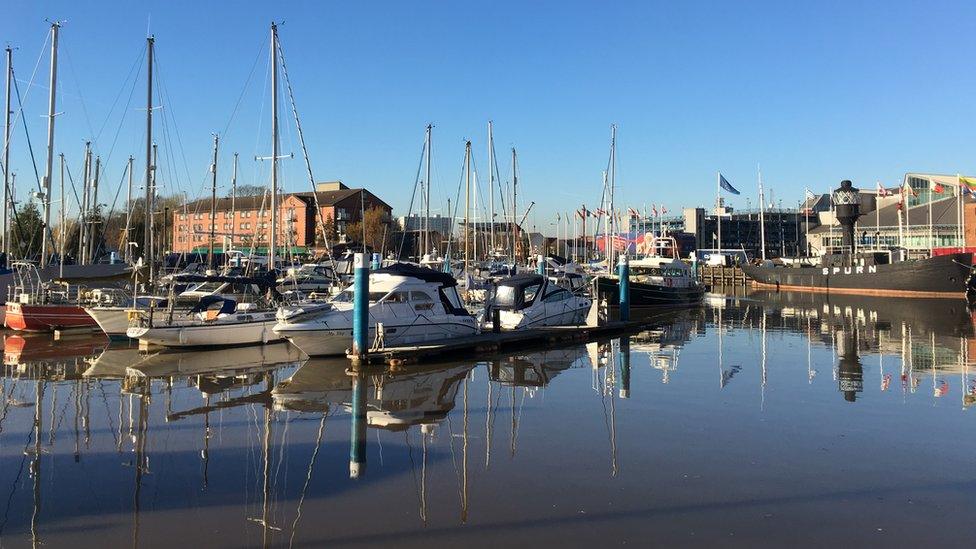
Are Hull's fortunes changing?
After decades of decline, the opening of Siemens' new £310m wind turbine blade factory has been hailed as the biggest investment in Hull since Victorian times. With only a few weeks to go before the UK City of Culture 2017 status kicks in, could the city be on the up?
When Siemens announced two years ago it was opening a new factory in Hull, the news was greeted with both jubilation and a sigh of relief.
This maritime city with a picturesque waterside location, easy ferry access to Europe and some of the most attractive buildings in the country had taken a tumble since the collapse of the fishing industry in the 1970s amid the "Cod Wars" with Iceland.
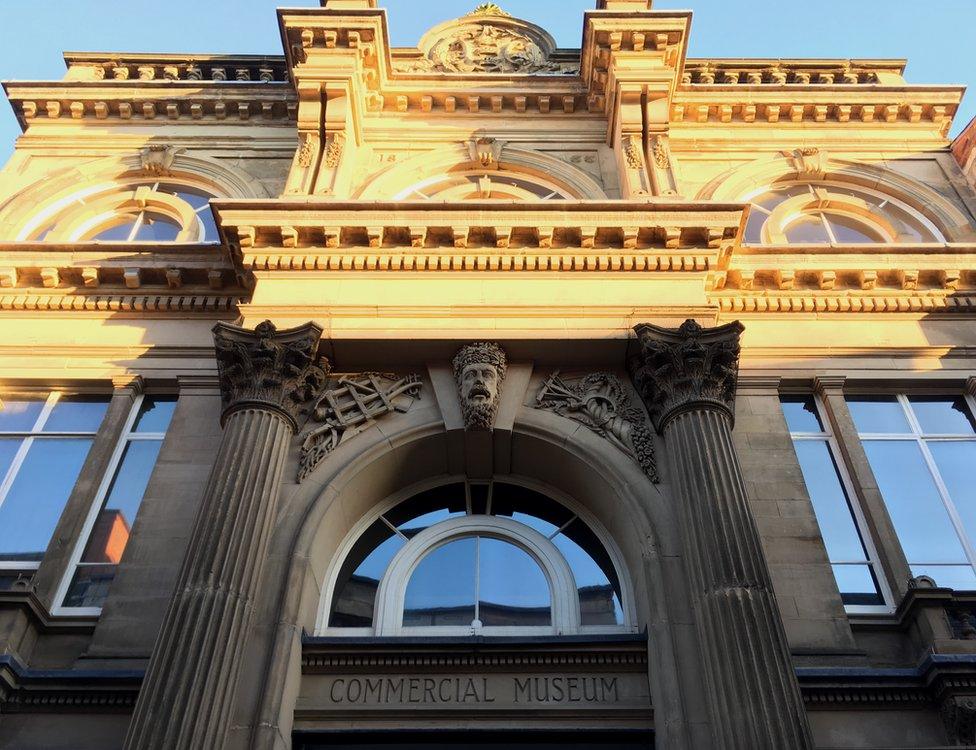
It spent many years at the bottom of economic and education league tables, experienced high unemployment and deprivation, and was once voted the worst place to live in the UK, external.
But the new 133-acre (540,000 sq m) facility on Alexandra Dock, where 1,000 people will be building blades for wind turbines, is being seen as a "game-changer" in the East Yorkshire city's fortunes.
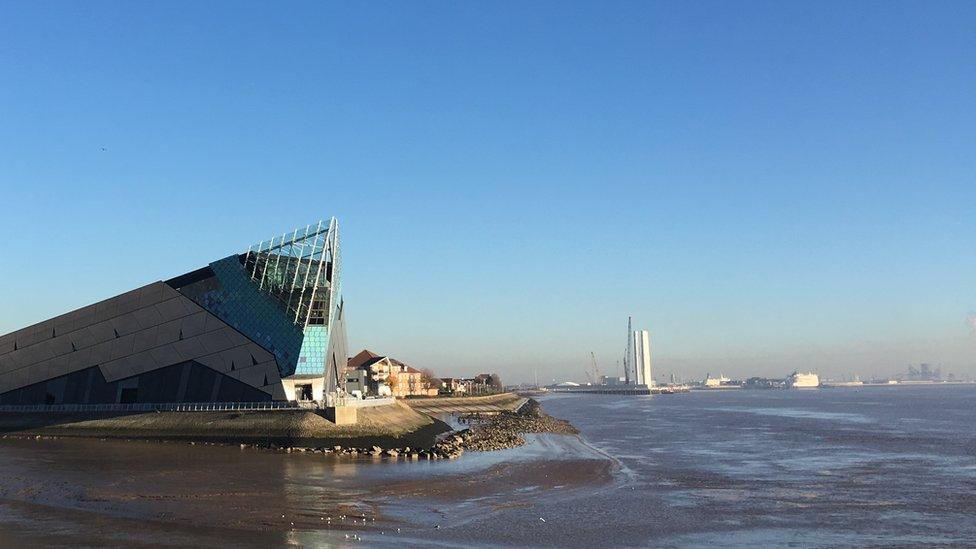

Alexandra Dock is reinventing itself in the renewable energy industry
According to Christopher Haskins, the chairman of the Humber Local Enterprise Partnership and former boss of Northern Foods, Siemens' presence is "one of the biggest investments in the history of the city".
"It certainly compares with the great investments that were made in the late 19th Century when the big docks were developed in Hull in order, ironically, to export coal from West Yorkshire to the rest of the world," Lord Haskins said.
"I would say it is definitely the biggest since Victorian times in terms of infrastructure change."
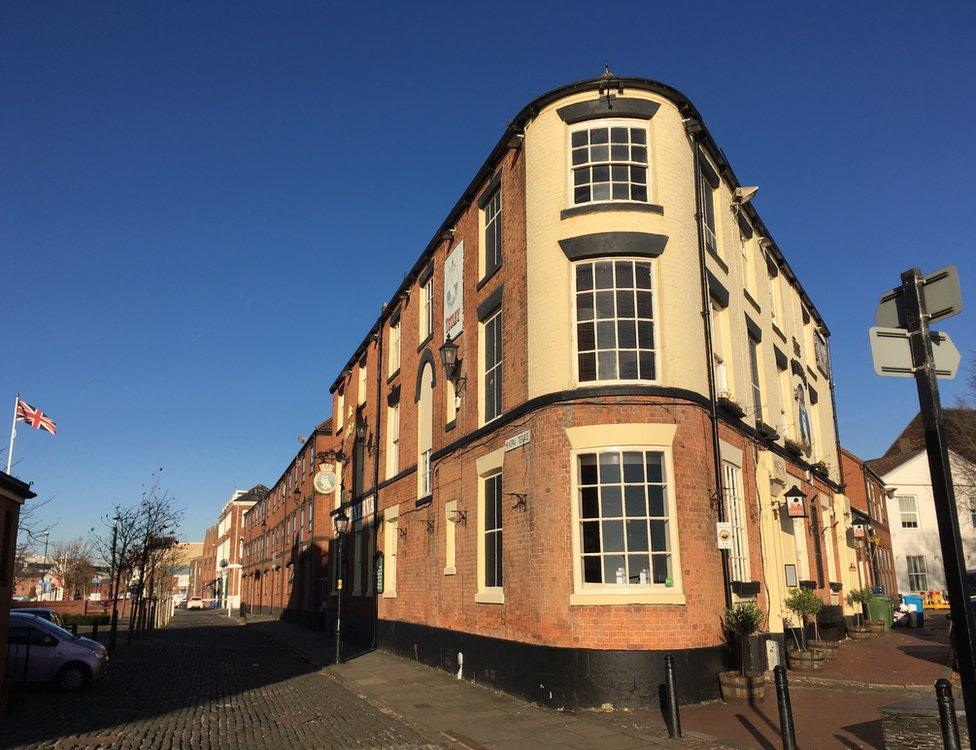
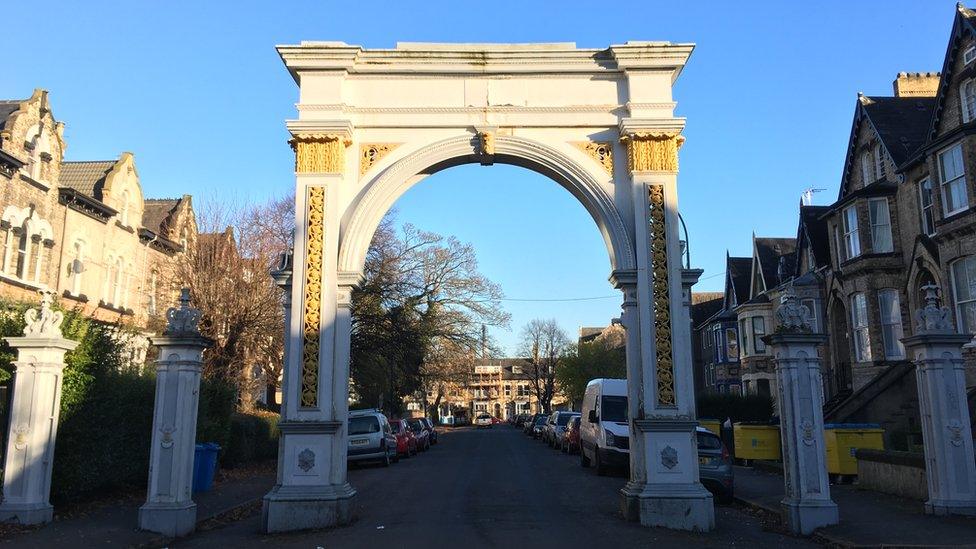
Evidence of Hull's boom during the Victorian era can be seen in its architecture
His sentiments are echoed by Hull historian Dr Alec Gill, who says the German firm augments the current roster of the city's home-grown companies in the pharmaceutical, healthcare and construction industries, among them Reckitt Benckiser, Smith & Nephew and the Spencer Group.
"These firms have been established here but they've gradually improved and increased the profits and expanded over the decades, compared to the Siemens' investment which has come completely from outside and landed from Mars, really. It's been injected in such a short period of time."
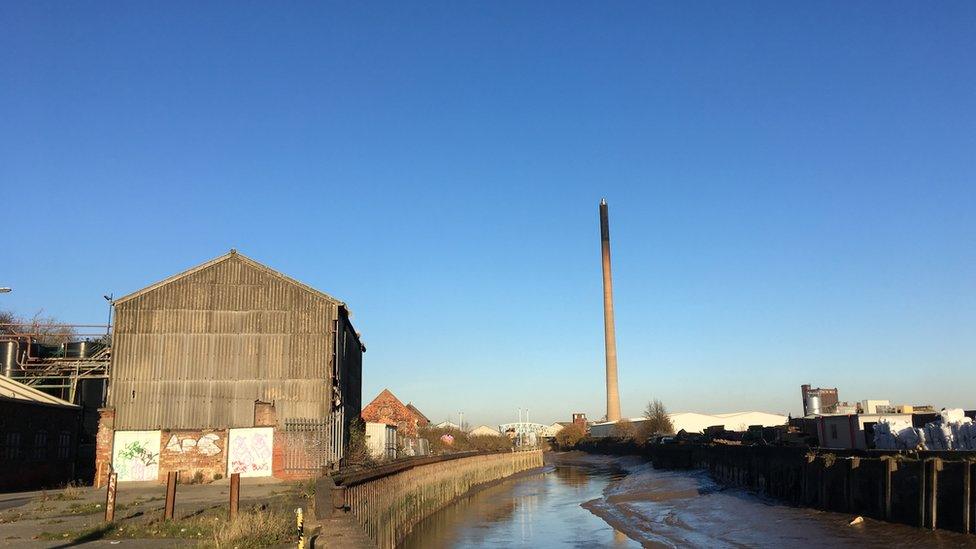
Hull was "a working-class town, drawing on fishing, whaling and manufacturing", says Dr Alec Gill
It was during Queen Victoria's reign that Hull saw its boom years. The number of docks expanded from two to seven, railways were built, the whaling trade and fishing industries were thriving.
So rapidly did Hull flourish that by 1897 it had been granted city status.
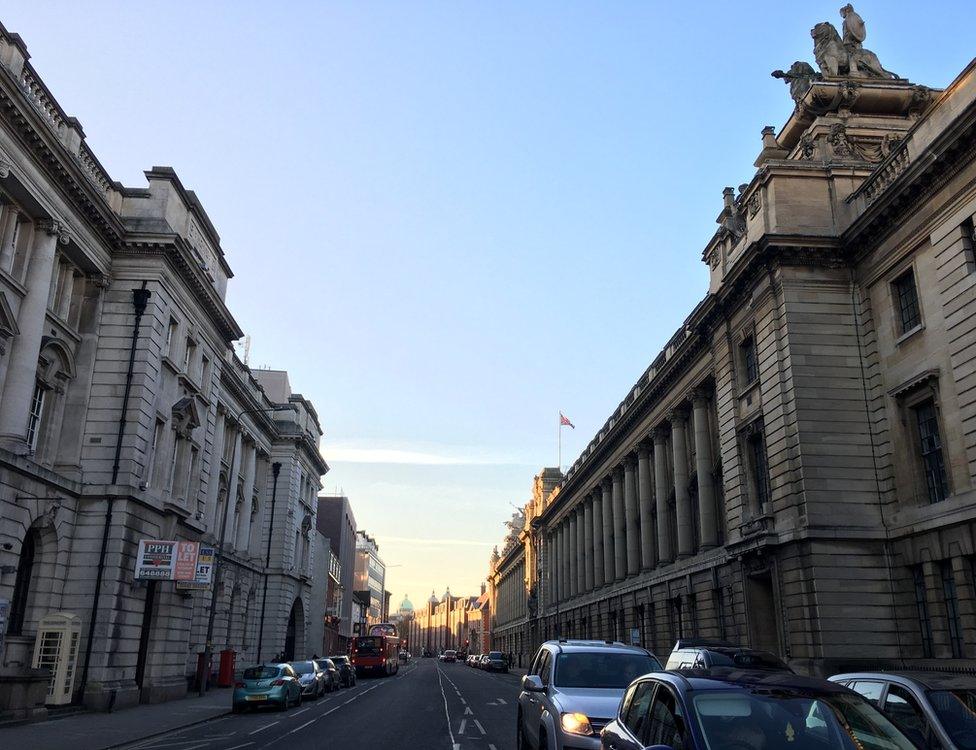
Hull needs more "high value jobs" paying larger salaries if the city wants to boost its prospects, economist Paul Swinney says
Now nearly 120 years on, Alexandra Dock, which was built to export coal from Yorkshire collieries, is reinventing itself within the energy industry, replacing coal with renewables.
"It's a massive site when you see it," said Lord Haskins.
"It's important to recognise that this is, in infrastructure terms, an enormous change and it's a new industry and it's a completely new world for the city of Hull and it goes much wider than Siemens."
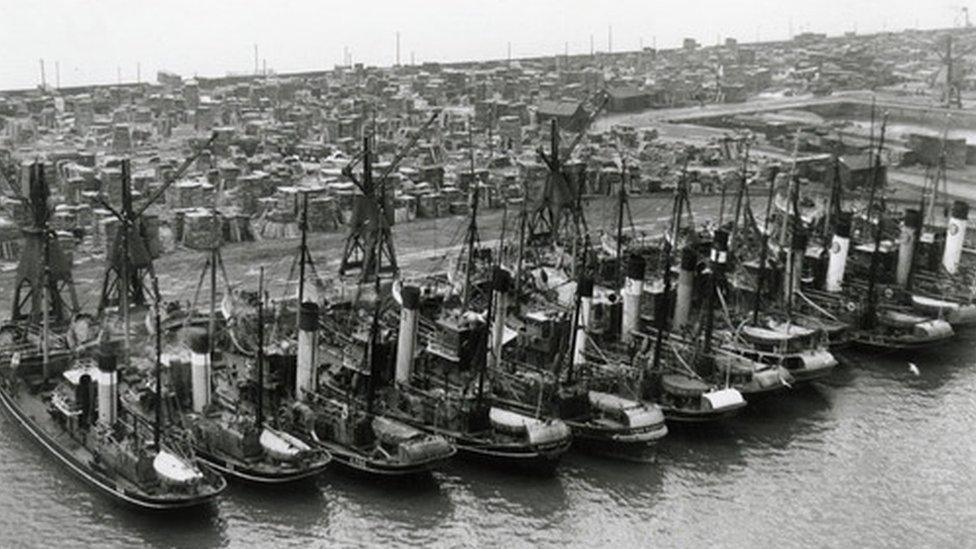
Hull & Barnsley Railway opened Alexandra Dock in the 1880s to expand Hull as a coal port. This photograph was taken in the 1930s
But in the 20th Century Hull's prosperity started to fade.
Left damaged and broken by two world wars and the decline of the fishing industry, its image as a rundown backwater haunted the city for decades.
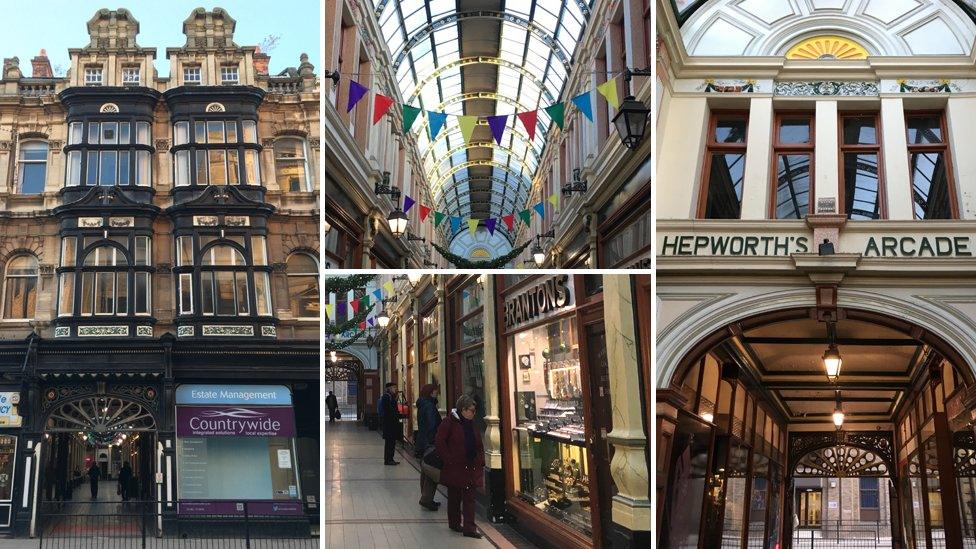
Low wages and higher than average unemployment levels are denting Hull's upward progression, according to think tank Centre for Cities
Five years ago 7.9% of Hull's population was claiming Jobseekers' Allowance. This had dipped slightly to 7.2% - still more than double the UK average - by 2013.
Dr Michael Nolan, senior lecturer in economics at the University of Hull, said the city was now "making progress in the right direction" with the number of claimants down to 3.5% compared to the UK's average of 1.8%.
"Although things have flattened out in the rest of the country, Hull's unemployment carried on downwards and it looks like there's some evidence that perhaps the Siemens effect over the last year or so has maybe begun to show some real signs of kicking in," he said.
However, according to the think tank Centre for Cities, the Siemens investment is unlikely to create a significant upturn in the city's economic fortunes because of the lack of "high-value jobs" that pay larger salaries.
Principal economist Paul Swinney questions whether Siemens' investment will "address the issues that Hull faces".
"It's great that Hull's managed to attract in that investment but what I'd imagine is that, because it's the manufacturing of the blades principally rather than the design and all of those sorts of higher value elements, it's not a great amount of money in that part of the production.
"Actually what Hull really needs in terms of being more successful in the coming decades, is to see the shift into more knowledge-based type activities, these higher-paid, high-skilled jobs, because that's what it lacks at the moment and that's why we see it having very low wages, very high unemployment and generally struggling."
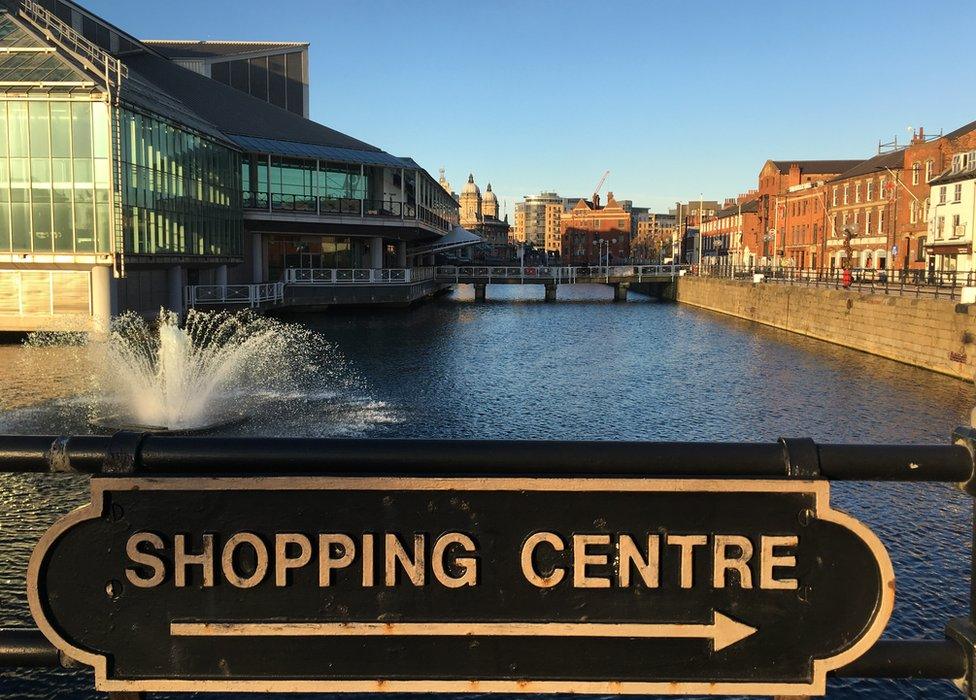
He said the cheaper labour force would "probably do very little" to steer Hull on an upward trend.
"You can't see this as being the answer to the longer structural problems that the city faces in terms of the challenges in its economy," he added.
Siemens UK chief executive Jurgen Maier, who strikes a more upbeat tone, said the company had helped to improve the skills of the local workforce.
"We've put a massive effort into training people, many going to our operation in Denmark to train," he said.
"We were pleased to be able to find many people with good engineering skills. Of the first 700 we've recruited, 90% of those are local.
"As we go forward, we're working in partnership with the city to create a local technical college where we will be able to train the future workforce for this activity and, with that, new apprentices."
How are wind turbine blades made?
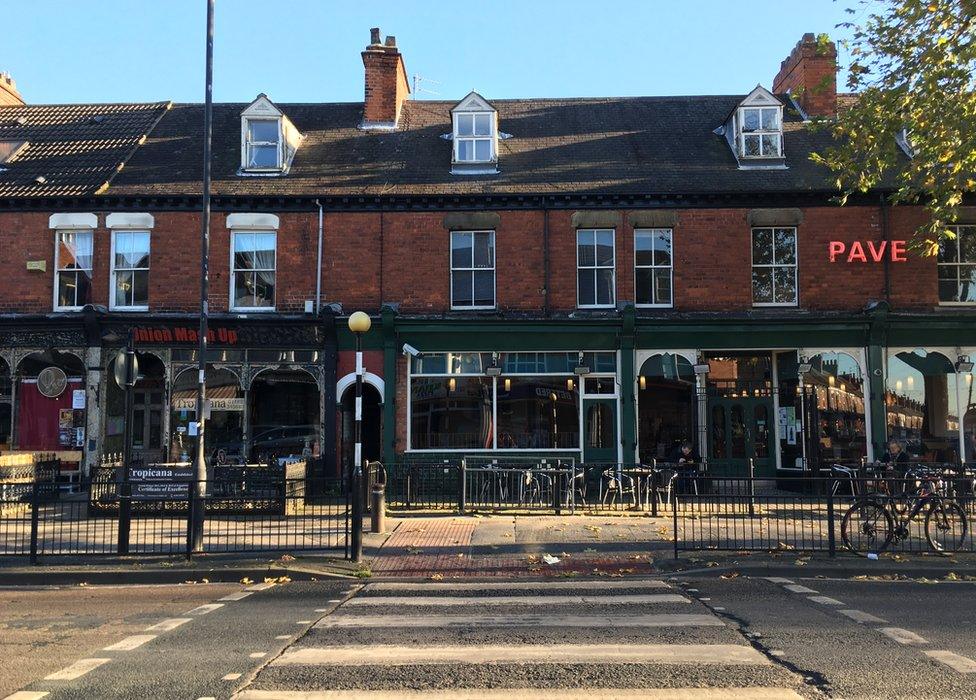
UK City of Culture is giving Hull a "positive perception to the outside world", says Lord Haskins
Hull's isolation has seen it miss out on the Northern Powerhouse's HS2 and rail electrification plans. But its size and geographical location, with its direct access to the North Sea, were the deciding factors for Siemens to set up its East Yorkshire base there, according to Mr Maier.
Mark Jones, director of regeneration at Hull City Council, said the city's profile was changing.
"To have a thousand jobs brought into the city in bulk has been a huge shot of adrenalin to our ambitions," he said.
"Investments such as this and other companies in the city, and then capitalised by the UK City of Culture, Hull's firmly on the map now with a very positive reputation."
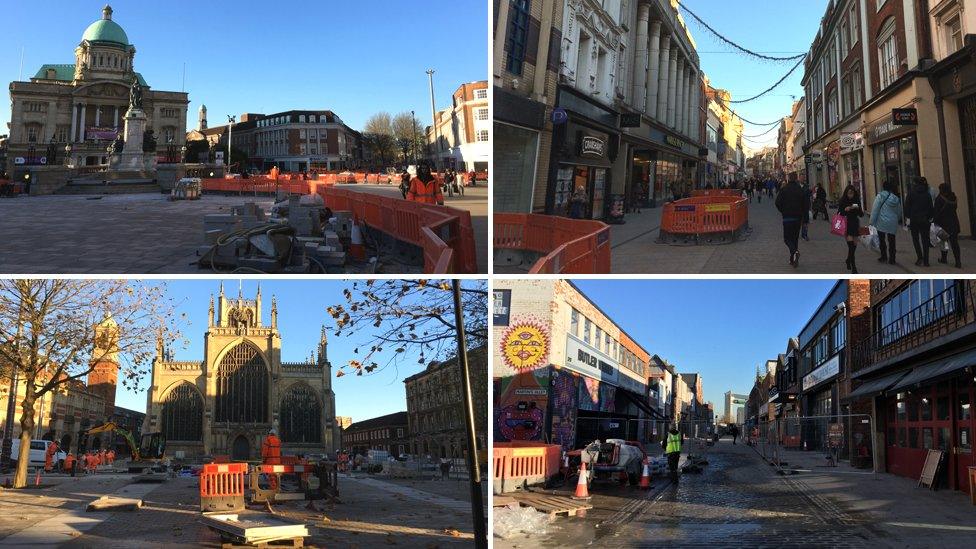
Hull is undergoing a massive facelift prompted by its UK City of Culture status
So what about Hull's "dull" and downbeat image?
Walking from one corner of the city to another means navigating a building site maze. Swerving and dodging the rows of orange and white barriers has become part of daily life as Hull prepares to take itself into 2017. The old cracked paving stones are being replaced by smart granite as part of a £25m regeneration triggered by the success of the UK City of Culture bid.
The team behind it says more than £32m has already been raised for the year-long cultural and arts programme, boosting the city's confidence.

"The isolation that Hull has had is now reducing," said Lord Haskins.
"We have the UK City of Culture which gives an outside world positive perception of an area, which has sadly had bad publicity over the last number of years. This is an opportunity to change those perceptions.
"There are lots and lots of good things happening in Hull at the present time; even though the general economy is poor for everybody, nevertheless there are things happening in Hull which give great hope for the future."
- Published18 November 2016

- Published22 September 2016

- Published22 September 2016

- Published16 September 2016

- Published20 November 2013
